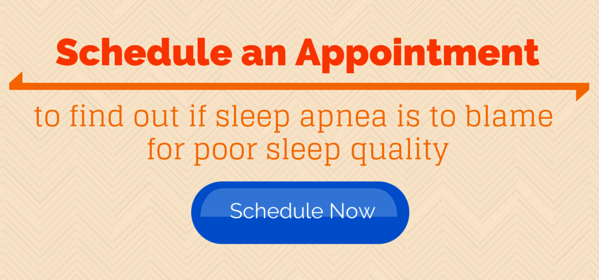
Is it possible that you could be doing damage to your brain while you’re sleeping?
In the study that followed older men from sleep assessment to autopsy, the men were divided into quartiles based on the percentage of time spent with lower than normal blood oxygen levels during sleep. Those who spent the most time in an oxygen-deprived state were found to have almost four times the level of microinfarcts at later autopsy compared with men who spent the least sleep time in this state. The most sleep-deprived men also had more brain cell loss.
Cerebral microinfarcts, also known as “mini-strokes”, create small spots of dead tissue in the brain due to an obstruction of blood supply. Microinfarcts essentially destroy the function of the brain one tiny piece at a time, resulting in cognitive decline.
In brief, the study found that elderly patients with sleep issues (such as obstructive sleep apnea) that resulted in low nocturnal oxygenation and reduced time in deep sleep were at an elevated risk for cognitive decline and dementia.
In an article about the study published on MedPage Today, Rebecca P. Gelber, MD, MPH reported, “We found that low oxygen levels during sleep were associated with more microinfarcts in the brain, which involve changes in the small blood vessels of the brain and injury to the surrounding neurons. We also found that less time spent in slow-wave sleep, which has been considered the deep, restorative stage of sleep and is important in processing new memories, was associated with more generalized atrophy of the brain.”
What’s important to note is that findings support that continuous positive airway pressure (CPAP) treatment in patients with obstructive sleep apnea may improve cognitive performance, even after dementia has developed.
What can be done to avoid long-term damage?
If you or a loved one is experiencing sleep deprivation, it is critical that you see a doctor to rule out any underlying sleep disorders, such as obstructive sleep apnea.
Ongoing symptoms that should raise a red flag may include:
- Habitual snoring
- Excessive daytime sleepiness
- Trouble concentrating
- Irregular heartbeat
- Sore throat
- Restless sleep
- High blood pressure
- Gasping or choking during sleep
- Pauses in breathing during sleep
Though snoring may seem like no big deal, in reality, it could be much more than an unpleasant noise; it can be a symptom indicating that the proper amount of oxygen isn’t reaching the brain during sleep.
Our national network of eos sleep doctors can examine, diagnose and treat the underlying causes of snoring and sleep apnea and help you rest assured that you are getting the healthy, restorative sleep you need.

